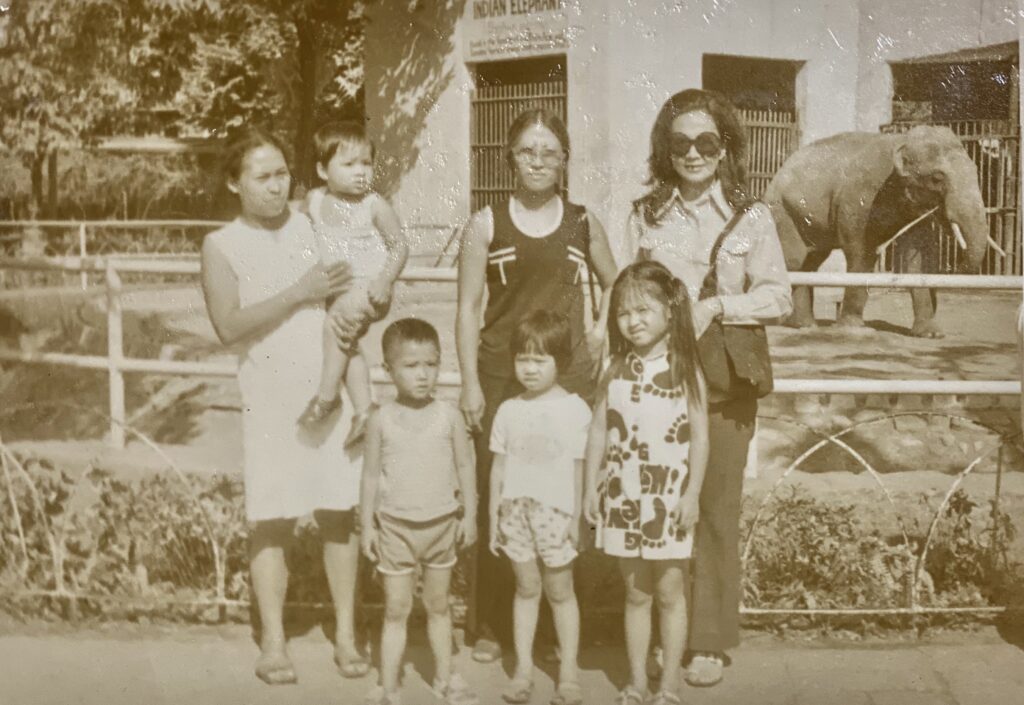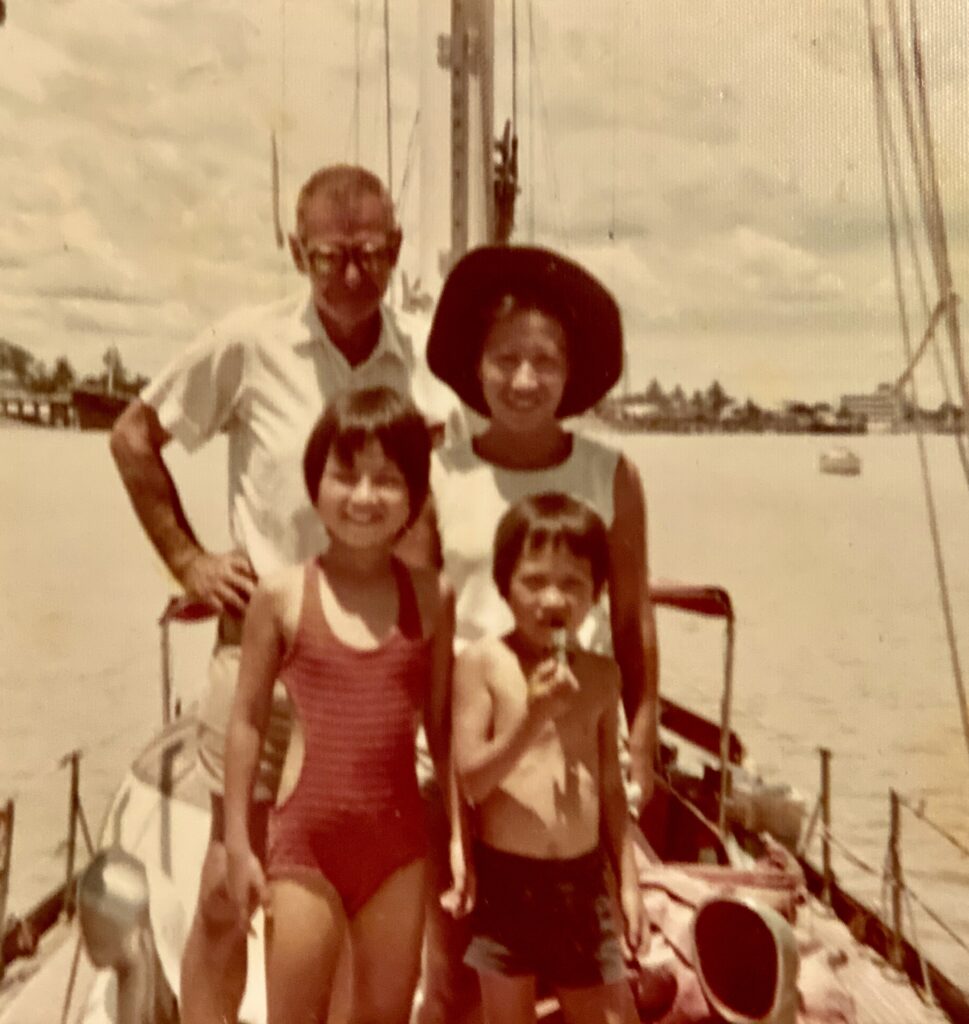We left the safe confines of Kowloon Bay to the roaring waters of the South China Sea, out of the frying pan and into the fire. It was July 1, 1971.
No prudent seafarer worth his salt would have set sail in these wrathful waters. But then again our situation was beyond abnormal.
The passport had arrived from the British consulate, and all three of us were able to sneak out at the crack of dawn. If we waited any longer, the heartless, conniving man who was my father would notice our absence and without hesitation, reach out to his extensive gang of hoodlums.
They would surely intercept us at knifepoint and deliver us back to his evil grip with abject retribution and misery.
So even with a menacing typhoon brewing in the troubled Philippine Sea, our odds were significantly better with Typhoon Harriett tearing up anything in its path than with a notorious gangster hell bent on rage and revenge.
As soon as we entered the unforgiving Sea, the ferocious ocean waves rocked the Choy Lee incessantly like a baby’s cradle. The stout sea swells rolled in from the southeast, and the wind blew steady at 25 knots, dragging us further west of track. We were tacking, hard into what seemed like a mighty gale. After over a year of progress and delays, we were finally on our maiden voyage, trekking over the open waters to unbridled freedom.
As we had expected from the forecast, the destructive storm stretched from the once-peaceful Philippines and roared into Vietnam like a menacing lion. The winds and the waves lasted just long enough and the South China Sea was just wide enough to boost Harriet to typhoon strength.
With sustained winds of 140 km/hour, the cyclone flooded the Philippines causing wide power outages and massive destruction. Then like a sabre through the heart, it struck near the demilitarized zone between the North and the South. The storm was so powerful that it caused significant disruptions to the Vietnam War. Both the Northern Vietnamese and the Viet Cong halted military operations and all planes and helicopters were grounded. On the deadly ocean, a yacht had capsized the the crew missing. And somewhere in the middle of the roaring South China Sea, a 40-foot yawl with a skipper, a young mother and two kids were desperately lost, hoping to find Polaris to navigate our way towards the island of Luzon.
Our progress was slow but steady and we journeyed over 100 km a day. Both my sister and I were strapped tightly in PFDs and tied up with a sea painter so wouldn’t go adrift. The mighty ocean made its way inside the cabin and for almost the entire trip, drenched everything it could find. All food items, even our precious bag of rice got soaked and started to bloat like a drowned pig. Most perishable food was quickly spoiled made its way overboard. Cooking was out of the question. Canned food and fresh water were the only things that kept us alive.
The newborn sailors were indoctrinated into the bleak realities of open ocean sailing. During the journey, the sailboat and its sea sickened crew were being mercilessly tossed about, as helpless as a bobbing cork in the middle of a rushing surf. But Mother Nature took pity. The storm shifted gears and headed for the east. They were lucky to be in the northern sector of the storm where the counter clockwise direction of the winds worked against the velocity of the storm’s winds. If not, they would surely have been lost at sea, another casualty to the growing toll of risk seeking pleasure boaters. The swells were heavy but the extra lift almost carried the storm surged craft towards land.
Even with the prevailing winds in our favor, we relied heavily on our perkins 4-cylinder diesel engine. We had departed with over 100 gallons of diesel, thinking that would be sufficient. We had grossly miscalculated and our tank had ran dry. Thankfully a Japanese cruiser saw us in distress and offered to send us 25 gallons which was just enough to bring us into the safe confines of Manilla Bay.
It was night time when we got there, and there was nothing that looked better than seeing the skyline of the Pearl of the Orient, dazzling and all lit up. It took us eleven days, but we finally made it. We escaped from Hong Kong and weathered a menacing typhoon all in one. Surely there would be safer days ahead.

We docked at the Manila Yacht Club on Roxas Blvd. We quickly made friends with the locals including a group of nurses. The marina was known for its scenic sunset and was a great place to meet people and get good food. Conveniently located to downtown and the Manila Zoo. While I was too young to go to school, Pearl attended Malate Catholic School. Every weekday, she was picked up and dropped off by our boat boy.
The safe land was a tropical archipelago of coconut trees and sugar cane. The Filipinos were extremely friendly, a definite deciding factor in our extended stay. But the entire family also enjoyed the warm climate and the majestic, untouched beauty of Mindanao Island. Only a few miles away by sea, and they were in the midst of a picturesque lagoon, with beautiful coral reefs filled with Angel and Bait fish. This was any man’s paradise. But after six months, it was time to bid adieu. It was touching, but they had made friends that would definitely last a lifetime.

Wow. This is something I didn’t know about you! This is truly inspiring. Thankfully you made it and achieved all you did.